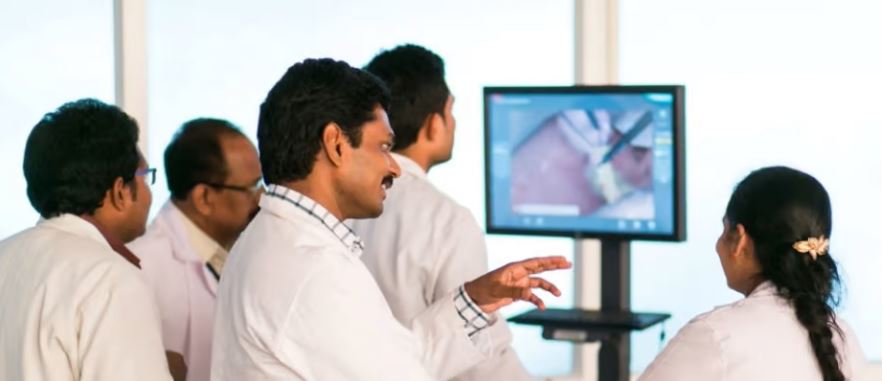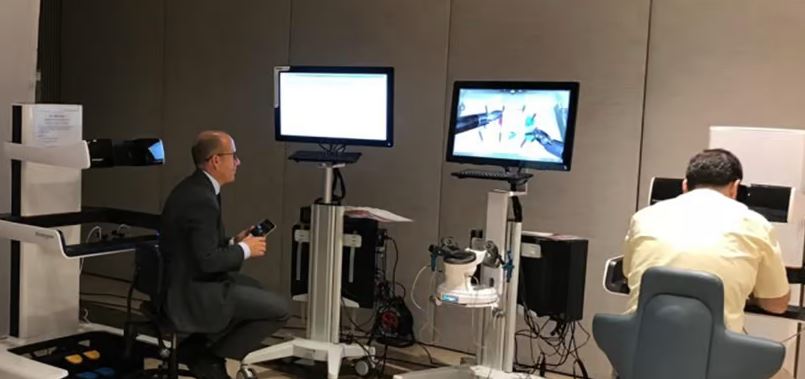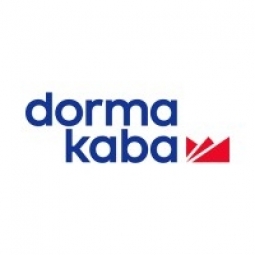Download PDF
The Guest House at PNNL Offers One More Amenity: Keyless Access Control
Technology Category
- Application Infrastructure & Middleware - API Integration & Management
Applicable Industries
- Education
Applicable Functions
- Facility Management
Use Cases
- Building Automation & Control
- Intrusion Detection Systems
Services
- System Integration
The Challenge
The Guest House at the Pacific Northwest National Laboratory in Richland, Washington, was facing issues with its magnetic stripe keycard locks. The keycards often became demagnetized, leading to lockouts. As the front desk isn't staffed 24/7, an on-call employee had to issue new keycards to locked-out guests. This was causing inconvenience to the guests and was also time-consuming for the staff. The management was looking for a solution that could eliminate the need for keys and cards and reduce the time spent on access control management.
About The Customer
The Guest House at the Pacific Northwest National Laboratory is a private 81-room hotel located in Richland, Washington. It caters to visiting scientists, students, and researchers. The hotel offers three types of rooms: dorm rooms for students, studio rooms, and one-bedroom apartments. The hotel is operated by Paragon Equity Management and offers amenities such as housekeeping and linen service, laundry facilities, vending and ice machines, an exercise room, and keyless entry.
The Solution
To address the challenge, the hotel installed Kaba’s Oracode keyless access control system. The Oracode system integrates a web application, handheld maintenance unit, and locks to create a system for generating encrypted numerical access codes. These codes are time- and date-specific, allowing the guest entry into a room while eliminating the need for keys and cards. The lock uses a stored digital key to decrypt the code. If the lock ID matches the lock's real-time clock and indicates that the current time is between the designated parameters, the lock will open. Otherwise, it will remain locked and secure. The hotel installed Oracode model 660 locks, which replaced their previous full body locks.
Operational Impact
Quantitative Benefit
Related Case Studies.

Case Study
IoT platform Enables Safety Solutions for U.S. School Districts
Designed to alert drivers when schoolchildren are present, especially in low-visibility conditions, school-zone flasher signals are typically updated manually at each school. The switching is based on the school calendar and manually changed when an unexpected early dismissal occurs, as in the case of a weather-event altering the normal schedule. The process to reprogram the flashers requires a significant effort by school district personnel to implement due to the large number of warning flashers installed across an entire school district.

Case Study
Revolutionizing Medical Training in India: GSL Smart Lab and the LAP Mentor
The GSL SMART Lab, a collective effort of the GSL College of Medicine and the GSL College of Nursing and Health Science, was facing a challenge in providing superior training to healthcare professionals. As clinical medicine was becoming more focused on patient safety and quality of care, the need for medical simulation to bridge the educational gap between the classroom and the clinical environment was becoming increasingly apparent. Dr. Sandeep Ganni, the director of the GSL SMART Lab, envisioned a world-class surgical and medical training center where physicians and healthcare professionals could learn skills through simulation training. He was looking for different simulators for different specialties to provide both basic and advanced simulation training. For laparoscopic surgery, he was interested in a high fidelity simulator that could provide basic surgical and suturing skills training for international accreditation as well as specific hands-on training in complex laparoscopic procedures for practicing physicians in India.

Case Study
Implementing Robotic Surgery Training Simulator for Enhanced Surgical Proficiency
Fundacio Puigvert, a leading European medical center specializing in Urology, Nephrology, and Andrology, faced a significant challenge in training its surgical residents. The institution recognized the need for a more standardized and comprehensive training curriculum, particularly in the area of robotic surgery. The challenge was underscored by two independent studies showing that less than 5% of residents in Italian and German residency programs could perform major or complex procedures by the end of their residency. The institution sought to establish a virtual reality simulation lab that would include endourological, laparoscopic, and robotic platforms. However, they needed a simulator that could replicate both the hardware and software of the robotic Da Vinci console used in the operating room, without being connected to the actual physical console. They also required a system that could provide both basic and advanced simulation training, and a metrics system to assess the proficiency of the trainees before they performed surgical procedures in the operating theater.

Case Study
Edinburgh Napier University streamlines long-distance learning with Cisco WebEX
• Geographically dispersed campus made in-person meetings costly and inconvenient.• Distance-learning programs in Malaysia, India, and China required dependable, user-friendly online tools to maximize interaction in collaborative workspaces.• Virtual learning environment required a separate sign-in process, resulting in a significant administrative burden for IT staff and limited adoption of collaboration technology.

Case Study
8x increased productivity with VKS
Before VKS, a teacher would spend a lot of time showing a group of 22 students how to build a set of stairs within a semester of 120 hours. Along with not leaving the teacher much time to provide one-on-one support for each student to properly learn carpentry, it also left a considerable amount of room for error. Key information would be misinterpreted or lost as the class was taught in the typical show-and-tell way.

Case Study
Scalable IoT Empowering GreenFlex's Sustainable Growth
GreenFlex, a company that supports sustainable development, decarbonization, and energy efficiency, faced several challenges in its quest to expand its business. The company needed to deploy a robust and sustainable IoT technology to support its growth. It was crucial for them to monitor and control devices at customer sites in a safe and reliable manner. They also needed to integrate devices across a range of communication protocols and gather and act on data to meet efficiency targets. GreenFlex had previously built IoT capabilities into its digital platform, GreenFlexIQ, to monitor and manage customer sites remotely. However, they soon realized that they needed a new platform to support their ambitions. They needed a platform that could scale to connect more devices for production management and make it easier for the operations team to manage devices in the field.





